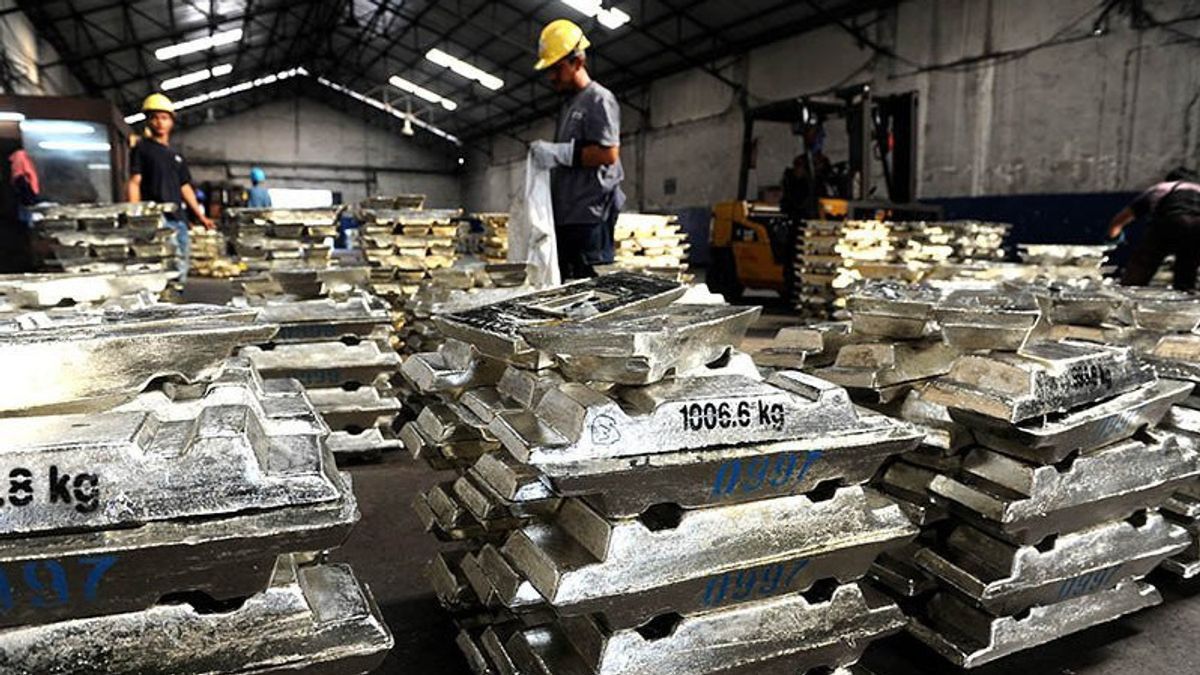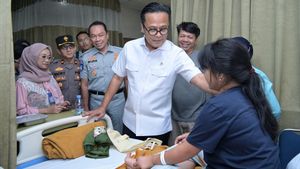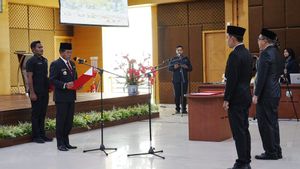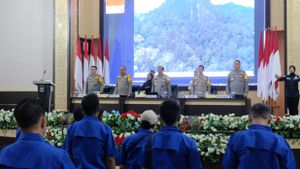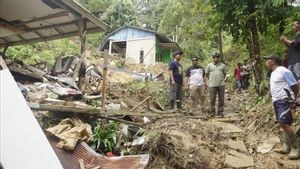YOGYAKARTA The government's plan to stop exponents seems to be getting rounder.
In the future, President Joko Widodo (Jokowi) wants Indonesia to build a domestic tin downstream industry so that its added value can be absorbed domestically.
For information, Indonesia previously exported lead to several countries such as Singapore, South Korea, Japan and Taiwan.
Based on a report from the Central Statistics Agency (BPS), Indonesia's total tin exports reached US$2.44 billion with a volume of 75.5 million kilograms (Kg) throughout 2021. Of this total, the most to Singapore was US$509 million with a volume of 14.98 million kg.
The government's decision to issue a ban on extimah is not without reason. As the President has revealed, he wants to build a domestic tin downstream industry.
The Minister of Investment/Head of the Investment Coordinating Board (BKPM) Bahlil Lahadalia also said the same thing when giving a speech at the Trade, Investment, and Industry Working Group (TIIWG) event, which was part of the G20 Indonesia Presidency.
He said Indonesia is the second largest tin producing country in the world.
While the first rank is occupied by China. In fact, Indonesia is also the largest exporter of tin.
Even though it is the largest producer and exporter of tin, tin downstream in Indonesia is no more than five percent. The ban on tin exports is Indonesia's effort to encourage downstreaming in the country.
"We have just done downstreaming of no more than 5 percent, how much loss will occur in our country?" he said, Wednesday, July 6, quoted from Bisnis.
The Impact of Termination of Lead Exports for Indonesia
One of the impacts that Indonesia will receive is a lawsuit from the World Trade Organization (WTO).
The same thing happened when Indonesia decided to stop exporting raw nickel.
Because of this policy, Indonesia was sued by European Union countries to the WTO.
However, President Joko Widodo (Jokowi) said that the government does not need to be afraid and must dare to face the lawsuit.
"Until now it has not been finished because we stopped. According to the rules, they said they were not allowed, yes, if we are sued then we are afraid and don't dare to keep going, it's continuous like the previous ones, the raw ones that we continue to export, sue, we sue and we can face the lawsuit, we can win and lose, "explained Jokowi.
The export ban is not only on tin but also on bauxite. President Jokowi said the government wanted to build the downstream industry for the two minerals in Indonesia.
He believes that with this decision, Indonesia can have up to 20 times the income compared to before.
"After nickel, this year we will stop exporting lead and bauxite," said Jokowi at the 19th Silatnas and Ultah of the Army Retired Association, Friday, August 5.
The Government's plan to build domestic lead downstream has not been realized. However, the Director General of Mineral and Coal (Dirjen Minerba) of the Ministry of Energy and Mineral Resources Ridwan Djamaluddin said that there are investors from China who are interested in funding the development of the tin downstream industry in Indonesia, precisely in the Province of Bangka Belitung Islands.
The development of the tin downstream industry planned by the Government will require investment with a value of trillions of rupiah and the required period is also quite long. This is because the Government must conduct a study related to industrial development.
"Technically it took two years to build this lead downstream industry," he explained.
The same thing was also said by the Deputy Chairperson of the Indonesian Chamber of Commerce (Kadin) ESDM, Carmelita Hartoto.
According to him, before closing the rubber export tap, entrepreneurs and stakeholders must make a lot of preparations.
That's information related to the government's plan to stop tin exports. To get other interesting information, visit VOI.ID through websites or social media.
The English, Chinese, Japanese, Arabic, and French versions are automatically generated by the AI. So there may still be inaccuracies in translating, please always see Indonesian as our main language. (system supported by DigitalSiber.id)
